Towards 2030: united in progress
How the Jameel Family is supporting the shared vision of the United Nations
When the United Nations (UN) was founded in New York in 1945, it was a potent symbol for a new age. An age of cooperation and optimism; where institutions, communities and businesses would shake off the ashes of war and work together to promote peace, partnership, progress.
“When a wind blows; ride it . . .” was a favorite Arabian proverb of my father.”
– Mohammed Jameel KBE
Chairman & CEO
Abdul Latif Jameel
That same year, more than 6,000 miles away in Saudi Arabia, a young entrepreneur called Abdul Latif Jameel saw an opportunity to harness these same winds of change – not only to build a business – but also to contribute to the development of the communities and society of his homeland, where it operated
This philosophy has been both a guiding beacon and driving force for the Jameel family over the past 75 years. A vision that challenges what is possible, fueled by an ambition to realize the potential of people, businesses, and communities on a global scale.
But the need for governments and commerce to materially contribute to advancing the quality, standards, rights, and freedoms of our modern global human society has long been recognized.
Nearly three decades ago, in June 1992, at the United Nations’ Rio Earth Summit, Brazil, over 178 countries adopted what was then Agenda 21, a plan to work in global partnership for sustainable development to improve human lives and protect the planet. This was followed by several further multilateral agreements including the Millennium Declaration (Millennium Summit Sept. 2000) which included eight Millennium Development Goals (MDGs) to reduce extreme poverty by 2015. The Johannesburg Declaration adopted at the World Summit on Sustainable Development (South Africa 2002); the UN Conference on Sustainable Development (Rio+20) (Rio June 2012) – which led to “The Future We Want” document. And a 30-member Open Working Group to develop a proposal for Sustainable Development Goals (SDG) in 2013.[1]
In 2015, the adoption of the 2030 Agenda for Sustainable Development, with 17 SDGs – a blueprint for peace and prosperity, for people and the planet, and one that was adopted by all UN Member States.
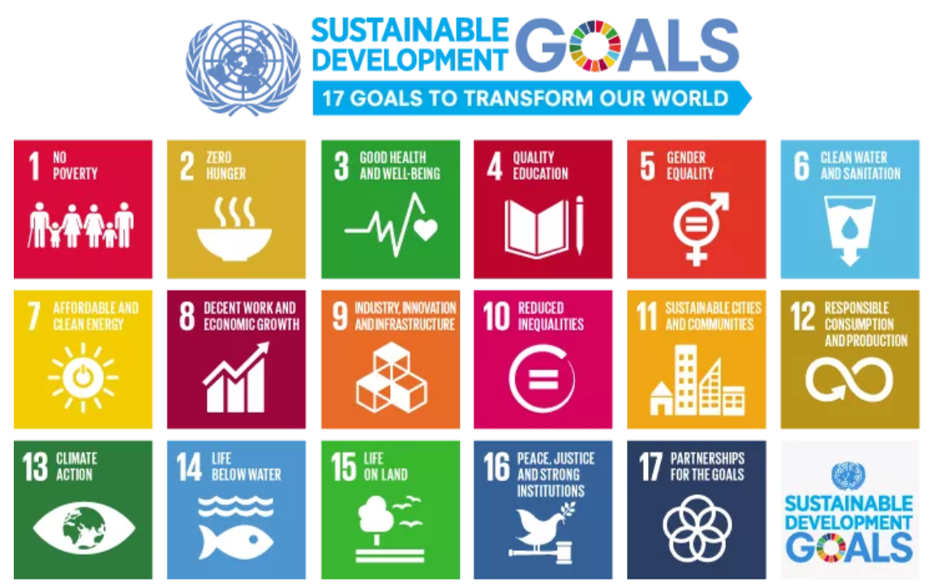
The aim of the 17 SDGs is that by working together to achieve them, businesses, governments, and communities can create a brighter, healthier future for our planet.
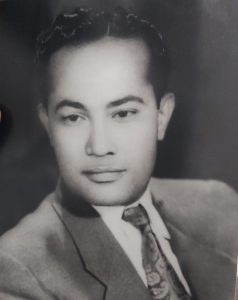
The SDGs echo the overarching philosophy that the Jameel Family has been working towards, instituted by the business’ Founder, the late Sheikh Abdul Latif Jameel, since its very earliest days, in the mid-1940s – a family tradition that has been continually invested in ever since, in an effort to truly make the world a better place for all.
Active across a diverse a range of important areas, from mobility, renewable energy, and energy storage, to water, financial services and health, education, livelihoods, poverty, climate, arts and culture, the work of the Jameel Family – both commercial and philanthropic – touches on virtually all 17 SDGs.
But there are some where it has a more direct and immediate impact as it seeks to address some of mankind’s greatest challenges.
Reducing poverty
![]()
![]()
Despite a world of unparalleled affluence than ever before in human society, the inequity of global poverty – SDG 1 – is perhaps our greatest challenge of our modern world. And it is one where the Jameel Family has been active since the very beginning in local communities, however, in 2005 it took on a major global significance.
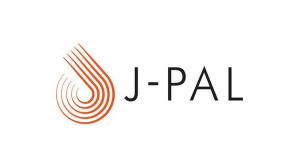
The Abdul Latif Jameel Poverty Action Lab (J-PAL) at Massachusetts Institute of Technology (MIT) was founded in 2003, and began its long collaboration with Community Jameel [pls use updated description] in 2005 (SDG 17).
It works to reduce poverty by ensuring that policy is informed by scientific evidence.
Anchored by a network of over 2,20 affiliated professors at universities around the world, J-PAL conducts randomized impact evaluations to answer critical questions in the fight against poverty. In 2019, two of the co-founders of J-PAL, Esther Duflo and Abhijit Banerjee, were awarded the Nobel Prize for Economics in recognition of their innovative approach to alleviating global poverty.
Eliminating hunger
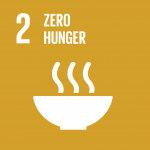 Alongside poverty, there are those who consider the hunger to be one of modern society’s greatest failures (SDG 2). It is not a failure of resources – there is more than enough to feed every individual on our planet – but a failure of commitment; of understanding; of investment, and of resource management. As Fady Jameel, Deputy President and Vice Chairman, Abdul Latif Jameel, discusses in his Spotlight article, at our current global population of 7.8 billion, 820 million people are hungry, yet 30% of the food we produce on the planet is never consumed[2]. Furthermore, the increasing global population is placing ever greater demands on food production, distribution, and safety.
Alongside poverty, there are those who consider the hunger to be one of modern society’s greatest failures (SDG 2). It is not a failure of resources – there is more than enough to feed every individual on our planet – but a failure of commitment; of understanding; of investment, and of resource management. As Fady Jameel, Deputy President and Vice Chairman, Abdul Latif Jameel, discusses in his Spotlight article, at our current global population of 7.8 billion, 820 million people are hungry, yet 30% of the food we produce on the planet is never consumed[2]. Furthermore, the increasing global population is placing ever greater demands on food production, distribution, and safety.
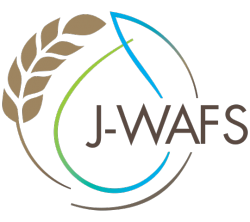 In addition to the valuable work of J-PAL that helps to inform policymaking in this area, the Jameel Water and Food Systems Lab (J-WAFS) at MIT – co-founded by Community Jameel and MIT -funds breakthrough research, innovation and technology to ensure safe, resilient food and water supplies with minimal environmental impact.
In addition to the valuable work of J-PAL that helps to inform policymaking in this area, the Jameel Water and Food Systems Lab (J-WAFS) at MIT – co-founded by Community Jameel and MIT -funds breakthrough research, innovation and technology to ensure safe, resilient food and water supplies with minimal environmental impact.
As Professor John H, Lienhard, Director of J-WAFS, explains, “J-WAFS funds advanced research all over MIT directed at providing safe and stable supplies of water and food throughout the world to people at all levels of society and in many countries and places.”
Since its founding in 2014, J-WAFS has funded more than 60 projects, generating more than US$ 12 million in follow-on funds to extend and expand their research. Success stories include a natural xylem filter made from tree branches to purify drinking water, and a Velcro-like food sensor, made from an array of silk microneedles, that pierces through plastic packaging to sample food for signs of spoilage and bacterial contamination.
Improving healthcare
![]() Our drive for affordable accessibility to healthcare for all – SDG 3 – began with the establishment of the Abdul Latif Jameel Hospital in 1995, the first not-for-profit rehabilitation hospital in Saudi Arabia, providing comprehensive care for adults and children.
Our drive for affordable accessibility to healthcare for all – SDG 3 – began with the establishment of the Abdul Latif Jameel Hospital in 1995, the first not-for-profit rehabilitation hospital in Saudi Arabia, providing comprehensive care for adults and children.
In the decades since then, two more Community Jameel research centers have been set up to make healthcare more accessible to those who need it most, explored in this recent Abdul Latif Jameel Perspectives article.
The Jameel Clinic (Abdul Latif Jameel Clinic for Machine Learning in Health) was co-founded by MIT and Community Jameel in September 2018 and has rapidly become the very epicenter of AI and healthcare at MIT. Its focus is on using AI to model biological data across modalities such as imaging, text and genomics, and making new discoveries in machine learning, biology, chemistry and clinical sciences.
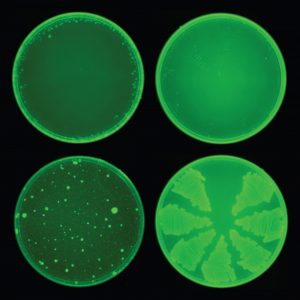 In early 2020, the Jameel Clinic used machine learning to discover a powerful new antibiotic, identified using a pioneering ‘deep learning’ algorithm. Halicin, is the first antibiotic to be discovered using AI methods, and can kill some of the world’s most dangerous drug-resistant bacteria. In the lab, the research team subjected halicin to dozens of bacterial strains, including some that are notoriously resistant to antibiotics such as Clostridium difficile (C. diff), Acinetobacter baumannii (A. baumannii), and Mycobacterium tuberculosis (M. tb).
In early 2020, the Jameel Clinic used machine learning to discover a powerful new antibiotic, identified using a pioneering ‘deep learning’ algorithm. Halicin, is the first antibiotic to be discovered using AI methods, and can kill some of the world’s most dangerous drug-resistant bacteria. In the lab, the research team subjected halicin to dozens of bacterial strains, including some that are notoriously resistant to antibiotics such as Clostridium difficile (C. diff), Acinetobacter baumannii (A. baumannii), and Mycobacterium tuberculosis (M. tb).
Similarly, the Jameel Institute (Abdul Latif Jameel Institute for Disease and Emergency Analytics) co-founded with Imperial College London, in October 2019, is using AI and novel data analytics to reduce global risk of preventable disease risk. Most recently, this has included the 2020 COVID-19 pandemic, and strengthening public health systems in the most fragile settings.
Led by Chief Executive Officer Akram Bouchenaki, Abdul Latif Jameel Health took this Jameel Family commitment into the commercial environment in 2020, addressing tangible real-world issues, it is focused on health care inclusion in the global south, accelerating access to modern medical care for those who need it most by opening up and growing new markets for distribution of existing solutions and investing in the future of MedTech.
Abdul Latif Jameel Health also aims to accelerate access to modern medical care through actively investing in innovative, early-stage and breakthrough ventures and technology, aiming to positively shape the future of medical and healthcare industries, from pharmaceuticals and vaccines to cutting-edge medical technology. In a short time, projects and collaborations have come quickly, such as its partnership with Evelo Biosciences, a clinical stage biotechnology company developing a new modality of orally delivered medicines, and its investment in Cellarity.
Expanding education
![]()
![]()
![]() Expanding education and opportunity for all (SDG 4) is not only a worthwhile ambition in its own right, but it underpins many of the other SDGs. In particular, education is a cornerstone on the journey toward economic growth and employment (SDG 8), and a pathway towards reducing inequalities (SDG 10).
Expanding education and opportunity for all (SDG 4) is not only a worthwhile ambition in its own right, but it underpins many of the other SDGs. In particular, education is a cornerstone on the journey toward economic growth and employment (SDG 8), and a pathway towards reducing inequalities (SDG 10).
The Jameel Family is working to improve access to quality education for those most in need, with a commitment to breaking down the barriers that hold back learning, through partnerships and initiatives.
MIT and Community Jameel cofounded the Abdul Latif Jameel World Education Lab (J-WEL) in 2017 with the mission to spark a global renaissance in education.
J-WEL promotes excellence and transformation in education by engaging educators, technologists, policymakers, societal leaders, employers, and employees to address global opportunities for scalable change in education.
There are also two scholarship programs to enable promising students from across the globe to benefit from a high-quality education that may otherwise be inaccessible.
The most recent, in 2019, is the Andrea Bocelli Foundation-Community Jameel Scholarship which supports students who study full-time at the Royal College of Music, London, one of the world’s leading conservatoires for the performing arts, while the Abdul Latif Jameel-Toyota Endowed Scholarship celebrated its own 25th anniversary in 2019, and continues to help young people achieve their potential at MIT, one of the world’s leading academic institutions.
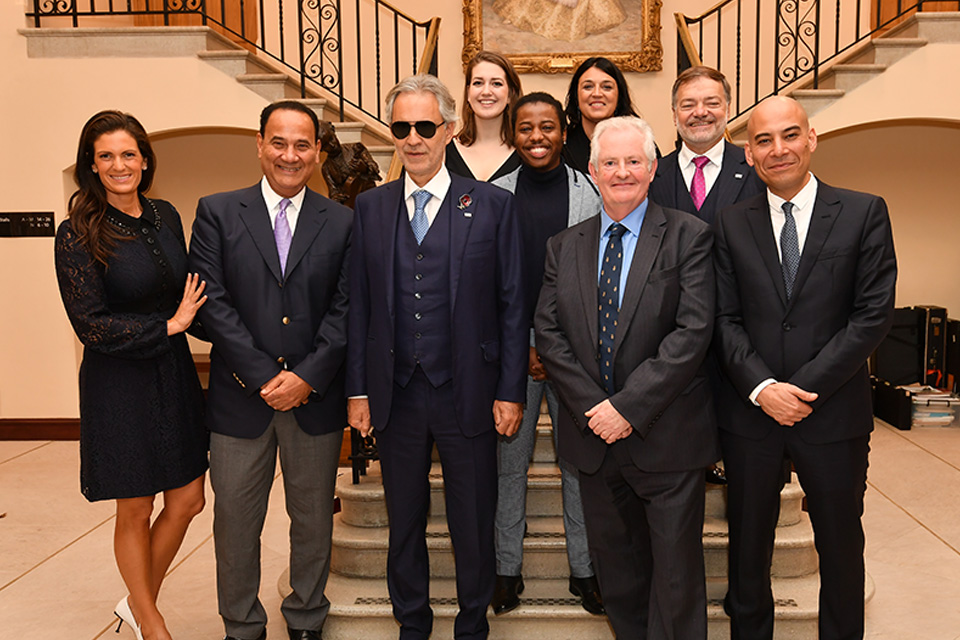
Across the business, support for education is vital, with flagship renewable energy business FRV funding scholarships to Spain’s IE University from the locality of each solar plant with their Young Talented Leaders program.
![]()
![]() Further initiatives include Transforming Refugee Education towards Excellence (TREE), a collaboration between Save the Children and J-WEL, which helps teachers overcome trauma and deliver effective teaching, and Tanweer Jameel, which works with Saudi Arabia’s Ministry of Labor and Saudi Airlines to reward orphaned children aged 14–18, who have consistently achieved high levels of school performance, with an annual trip abroad.
Further initiatives include Transforming Refugee Education towards Excellence (TREE), a collaboration between Save the Children and J-WEL, which helps teachers overcome trauma and deliver effective teaching, and Tanweer Jameel, which works with Saudi Arabia’s Ministry of Labor and Saudi Airlines to reward orphaned children aged 14–18, who have consistently achieved high levels of school performance, with an annual trip abroad.
In the corporate sphere, Four Principles, a lean management consultancy, is helping to educate businesses and leaders across the Middle East on the principles of lean management, helping them to reduce waste (SDG 12) and become more efficient, more effective competitors in their industries (SDG 9).
Increasing employment opportunities
![]()
![]() We firmly believe there is no better way to improve a community than through work. When people have work, they have the ability to contribute to society, they have personal pride, family stability, money to spend and a sense of freedom (SDG 8).
We firmly believe there is no better way to improve a community than through work. When people have work, they have the ability to contribute to society, they have personal pride, family stability, money to spend and a sense of freedom (SDG 8).
Bab Rizq Jameel—or ‘beautiful gateway to prosperity’—helps young men and women in Saudi Arabia, Egypt, and Morocco to find work. It links job seekers with employers, providing support and interest-free loans to entrepreneurs, together with remote work and home-based job programs.
Similarly, Nafisa Shams provides employment and training programs for women, empowering them to achieve a balance between family responsibilities and playing an active role in the job market (SDG 5). In addition, Nafisa Shams has launched Nafisa Shams Incubator, one of the first female business incubators in Saudi Arabia, specializing in design and crafts.
Also with a focus on the cultural sector, Art Jameel supports artists and develops creative communities via an extensive international program of arts and learning initiatives. One of its flagship ventures, the Jameel Arts Centre, opened in November 2018, and now known as Dubai’s contemporary arts museum. Its purpose is to display contemporary art to the public and encourage the participation of broad audiences through exhibitions, learning, research, commissions and public programs.
Another exciting venue, Hayy Jameel, in Jeddah, Saudi Arabia, is set to open in 2021. The 17,000 square meter “creative hub” features an arts and exhibition center; Saudi’s first independent cinema and audio-visual center; a learning institute and artists’ studios; plus spaces for 12 partner organizations, including a comedy club, fashion, art and design galleries, cafes and a co-working space and culinary school.
Protecting our planet
![]()
![]()
![]() Taking care of our planet – and ensuring we have a viable home for future generations – may well be our most important task of all (SDGs 11, 13, 15). It is one of the reasons we have spent over 75 years investing in the infrastructure of life.
Taking care of our planet – and ensuring we have a viable home for future generations – may well be our most important task of all (SDGs 11, 13, 15). It is one of the reasons we have spent over 75 years investing in the infrastructure of life.
While J-WAFS supports new research to tackle climate change, water scarcity and the reduction of waste, two Jameel Family organizations are putting innovation into action to find new ways to nourish and power our society today.
Through Almar Water Solutions, part of Abdul Latif Jameel Energy and Environmental Services, we are tackling the issues of our planet’s most precious resource, water, with treatment and recycling and sustainable desalination.
Almar Water Solutions is a specialist provider of technical capabilities for water infrastructure development, including design, financing and operation.
![]() The company has a major stake in the Muharraq wastewater treatment plant in Bahrain, and is developing Kenya’s first large-scale desalination plant in Mombasa, the country’s second largest city, to supply drinking water to more than one million people. In 2019, Almar Water Solutions (as part of a consortium) was awarded the contract to develop one of the world’s largest desalination plants, the now award winning Shuqaiq 3 IWP on the Red Sea cost of Saudi Arabia, a US$ 600m investment with the capacity to deliver clean water to around 1.8 million people every day. More recently, Almar expanded rapidly in Chile and Egypt.
The company has a major stake in the Muharraq wastewater treatment plant in Bahrain, and is developing Kenya’s first large-scale desalination plant in Mombasa, the country’s second largest city, to supply drinking water to more than one million people. In 2019, Almar Water Solutions (as part of a consortium) was awarded the contract to develop one of the world’s largest desalination plants, the now award winning Shuqaiq 3 IWP on the Red Sea cost of Saudi Arabia, a US$ 600m investment with the capacity to deliver clean water to around 1.8 million people every day. More recently, Almar expanded rapidly in Chile and Egypt.
The growth of Almar’s portfolio of water infrastructure assets is a sign of the intent and commitment of the Jameel Family to tackling this most pressing of challenges, and to improving access to sustainable water supplies for communities across the globe.
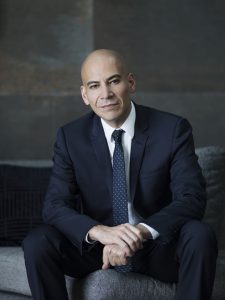
As Fady Jameel, Deputy President and Vice Chairman, Abdul Latif Jameel, explains in his Spotlight article:
“Innovating, developing and investing in processes and technologies that enable us, as a society, to provide an adequate supply of water for our communities, industries and agriculture – in a way that doesn’t harm, but is in harmony with the environment – is one of the biggest challenges we will ever face.”
Powering the future
The success of Almar Water Solutions has proven to be the ideal complement to Fotowatio Renewable Ventures (FRV), the flagship renewable energy arm of Abdul Latif Jameel Energy.
FRV is helping the transition to renewable sustainable energy and exploring new technologies to tackle climate change. With a presence on five continents, it has developed over 50 renewable energy plants and has a project portfolio of over 2.5 GW in global solar markets across Australia, the Middle East, India, Africa, USA and Latin America.
![]() Combined with rapid advances in energy storage technology, renewable energy has the potential to fulfil our energy needs on a 24/7 basis. FRV is already a pioneer in utility-scale battery storage technology, too, having partnered with British developer Harmony Energy on a 15 MWh utility-scale battery array at Holes Bay, Dorset, and also at Contego, West Sussex, both in the UK. This topic is explored in more depth in this Spotlight podcast, hosted by Fady Jameel.
Combined with rapid advances in energy storage technology, renewable energy has the potential to fulfil our energy needs on a 24/7 basis. FRV is already a pioneer in utility-scale battery storage technology, too, having partnered with British developer Harmony Energy on a 15 MWh utility-scale battery array at Holes Bay, Dorset, and also at Contego, West Sussex, both in the UK. This topic is explored in more depth in this Spotlight podcast, hosted by Fady Jameel.
Partners for a brighter tomorrow
![]() The Jameel Family has built diverse and wide-ranging alliances based on respect, shared values and a mutual commitment to creating tangible value for the future of human society – a vision that is closely aligned with the SDGs, as well as the UN’s own ambition to create “peace, dignity and equality on a healthy planet.”
The Jameel Family has built diverse and wide-ranging alliances based on respect, shared values and a mutual commitment to creating tangible value for the future of human society – a vision that is closely aligned with the SDGs, as well as the UN’s own ambition to create “peace, dignity and equality on a healthy planet.”
Through our continued investment in the ‘infrastructure of life’ around the world, from food systems to energy, education to health, we are committed to supporting a fairer, greener, more prosperous future for all, as we strive for solutions to some of the most challenging questions facing humanity, and our planet.
The reach and impact already achieved would be impossible without the commitment, expertise, and resources of our partners.
Together, we are looking beyond and working to innovate for a better future.
Learn more about how the Jameel Family’s activities are contributing to the Sustainable Development Goals by visiting: https://jameel75.com/sdg to watch our video and download a summary report.
[2] The State of Food and Agriculture – Moving Forward on Food Loss and Waste Reduction, Food and Agriculture Organization, 2019





 1x
1x

 Added to press kit
Added to press kit


